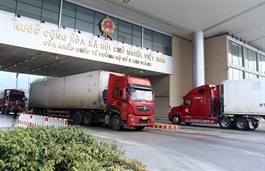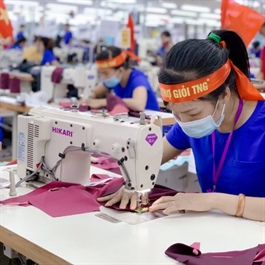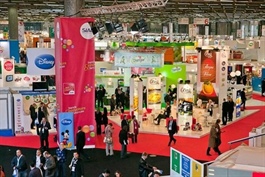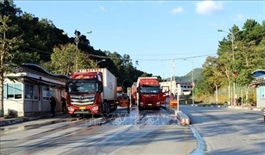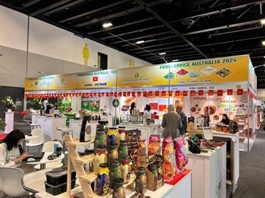Promoting Vietnamese pharmaceutical industry
Promoting Vietnamese pharmaceutical industry
The Vietnamese pharmaceutical industry is seeing great advantages.
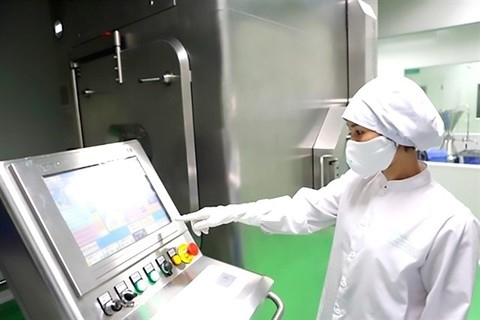
A worker operates equipment at a Traphaco plant. — Photo traphaco.com.vn |
People's spending on health was increasingly high giving pharmaceutical enterprises great potential for development, said Associate Professor, PhD. Lê Văn Truyền, former Deputy Minister of Health.
Speaking to Sức khoẻ & Đời sống (Health & Life) online newspaper, Tạ Mạnh Hùng, Deputy Director of the Drug Administration of Việt Nam (DAV) under the Ministry of Health (MoH), said that previously a Vietnamese person only spent less than US$5 each year to buy medicine but now this number increased to $70 per person per year.
According to the Việt Nam Pharmaceutical Companies Association (VNPCA), the growth rate of drug production by domestic enterprises has increased quite rapidly.
The value of domestic drug production only reached 17 per cent of the total value of people's medicine costs in the 2001-2011 period, and increased to 46 per cent in the 2015-2021 period.
A DAV report also shows that the total value of the Vietnamese pharmaceutical market grew from $2.7 billion in 2015 to $7 billion in 2022 and is forecast to reach more than $10 billion by 2026.
Although Việt Nam has developed a large number of pharmaceutical companies, domestic manufacturing enterprises do not yet play a leading role in the pharmaceutical market.
Domestically-produced drugs account for less than 50 per cent of the total value of drugs consumed.
The scale of pharmaceutical manufacturing enterprises is not large with fewer products and low science and technology. Plus nearly 90 per cent of raw materials for drug production are imported.
The reason is that consumers' psychology of using pharmaceuticals still has preference for foreign products. In addition, Việt Nam currently has not been able to produce specialised drugs.
Hùng said to realise the goal of developing the pharmaceutical industry in Việt Nam, continued improvements needed to be made to institutions and laws on drug production, business, import-export, supply and distribution.
In particular, there needed to be a special preferential policy for research and technology transfer to produce invented drugs, vaccines, and biological products, he added.
In addition, it was necessary to implement solutions to improve the capacity to manage and control the market of drugs and medicinal ingredients, especially testing vaccines and biological products, he said.
The DAV representative also recommended promoting research and international relations to develop special treatment drugs.
There should be a specific orientation and roadmap to standardise training of pharmaceutical human resources.







